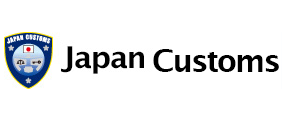4003 Overview of the Elimination or Reduction in Tariffs under the Japan-Singapore Economic Partnership Agreement
- Based on the Japan-Singapore EPA, the tariff is scheduled to be eliminated approximately 99% of the value of the trade between the two countries (100% of exports from Japan and approximately 95% of imports from Singapore) within 10 years from the entry into force of the agreement.
I. Agriculture, forestry and fisheries
(1) Basic policy
Although the tariff has been lifted for items that are already duty-free (excluding items subject to duty-free concessions under the WTO and those subject to tariff quota but are effectively duty-free) in order to prevent adverse effects on domestic agriculture, forestry and fisheries, the amended Protocol merely added immediate or gradual tariff elimination for certain other items.
(2) Items for which tariffs have been eliminated
Of agricultural, forestry and fisheries items (Note), the tariff has been eliminated for items excluding those that are (a) subject to duty-free concessions under the WTO and (b) effectively duty-free and not subject to the agreement due to its scheme. In addition to the aforementioned items, Japan pledged tariff elimination for mangos, durians, asparagus, processed curry products, process timber, fresh and frozen prawn, etc., under the amended Protocol. The concrete examples of items to become tariff-free and those that do not are shown below.
| Examples of tariff-free items | Examples of items for which tariffs remain |
|---|---|
| Examples of items imported in the past
|
Note: Scope of agricultural, forestry and fisheries products
(a) Agricultural products: Items shown in Annex I Paragraph 1 (ii) of the WTO Agricultural Agreement and HS1-24 categories excluding fisheries products
(b) Forestry products: HS44 & 46
(c) Fisheries products: Items in HS1-24, excluding the aforementioned agricultural products
Ⅱ. Industrial products
(1) Basic policy
Tariff elimination, excluding exemption items (certain petroleum products, leather, etc.)
(2) Items for which tariffs have been eliminated
| Examples of tariff-free items | Examples of items for which tariffs remain |
|---|---|
| Examples of items imported in the past
|
For consultations on customs procedures, please contact the nearest Customs Counselor.
Please see No. 9301 for inquiries.

